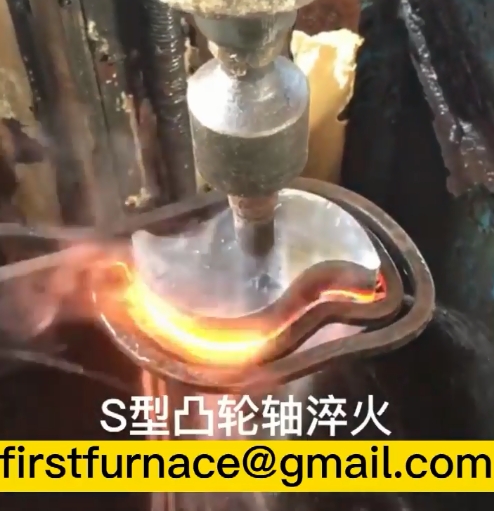- 06
- Dec
Camshaft induction heating and quenching process
Camshaft induction heating and quenching process
After the structure of the quenching machine tool is determined, the 8 cam induction heating quenching process method is determined. This process method is that the workpiece enters the inductor, and the workpiece is energized for heating once. After the workpiece exits the inductor, it is transferred to the quenching medium, and the immersion liquid is cooled and quenched. . The process parameters used in quenching are shown in Table 2 .
Table 2 Camshaft induction heating and quenching process parameters
| Electrical parameters | Time parameter /s | Quenching medium | |||||||||
| DC voltage /V | DC current /A | Intermediate frequency voltage /V | Effective power /kW | Capacity /uF | Transformer turns ratio | IF frequency /kHz | heating | Pre-cooling | Concentration ( % ) | Temperature /℃ | Stirring pump outlet pressure /MPa |
| 380 | 800 | 620 | 350 | 180 | 18/1 | 3.7 | 13 | 2 | 11 | 10-40 | 0.4 |
There must be a certain amount of residual heat when the quenched workpiece is exposed to the liquid surface, so that the residual heat can be used for tempering to eliminate the quenching stress. There are two methods to control the temperature of the workpiece. One is to adjust the residence time of the workpiece in the quenching medium, which can be achieved by changing the length of the intermittent movement time of the conveyor 6 . Another method is to change the concentration of the quenching medium. The quenching agent we use is 8-20 water-soluble quenching agent, and its cooling capacity decreases as the concentration increases.
https://songdaokeji.cn/14033.html
https://songdaokeji.cn/14035.html
https://songdaokeji.cn/14037.html

